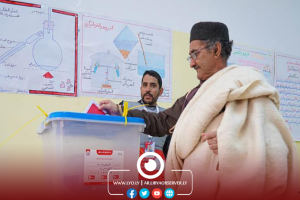By Mohamed Abaid, Independent Libyan Analyst
Addressing Libya's Healthcare Workforce Deficit: A Comprehensive Strategy for Importing Healthcare Professionals

Libya's healthcare sector, currently grappling with a pronounced workforce deficit, faces significant impacts on healthcare delivery. The shortage of healthcare professionals has led to a critical situation that demands immediate attention and innovative solutions. One potential solution to this predicament is inviting healthcare professionals from other countries where a surplus exists. This article explores the feasibility of importing healthcare professionals from four such countries - Bangladesh, Pakistan, India, and the Philippines - and the comprehensive strategy required for successful integration.
Advantages of Importing Healthcare Workers
Importing healthcare professionals can redress the workforce shortage in Libya, leading to better healthcare access for Libyans. The advantages of this approach are manifold:
-
Filling the Workforce Gap: By tapping into countries with a surplus of trained healthcare workers, Libya can fill its workforce gap, thereby improving healthcare access for its citizens.
-
Enhancing Quality of Care: Foreign professionals bring a wealth of diverse skills and knowledge, thereby augmenting the quality of healthcare delivery in Libya.
-
Cultural Competence: The introduction of diverse skill sets can lead to cultural competence, enhancing patient experience through culturally sensitive care.
Challenges in Importing Healthcare Workers
While importing healthcare professionals offers substantial advantages, it is not devoid of challenges:
-
Language and Communication Barriers: Potential barriers in communication due to language differences.
-
Cultural Differences: Navigating cultural nuances and expectations.
-
Legal and Administrative Processes: Intricate processes that require careful handling.
-
Ethical Considerations: Ensuring ethical recruitment and treatment of imported professionals.
The Role of Recruitment Agencies in Workforce Import
Recruitment agencies such as Omnipresent, Gmedical, Judge group, and Medacs can play a pivotal role in importing healthcare professionals. Their roles encompass identifying suitable candidates, streamlining the hiring process, managing legal and administrative procedures, and offering support during the transition to Libya.
The Strategic Approach to Successful Integration
The successful recruitment and integration of foreign healthcare professionals require a strategic approach, including:
-
Defining Job Requirements: Clear articulation of roles and expectations.
-
Sourcing and Hiring: Identifying and interviewing suitable candidates.
-
Legal Compliance: Ensuring alignment with Libyan labor laws and medical licensing requirements.
-
Cultural and Language Competence: Emphasizing cultural sensitivity and language training.
Supporting Measures for Integration
-
Cultural and Language Training: Tailored programs focusing on Libyan cultural norms and language nuances.
-
Housing and Living Arrangements: Providing convenient housing, transportation, and access to everyday living needs.
-
Employment Opportunities and Benefits: Offering competitive salaries and benefits to attract and retain high-quality healthcare workers.
Conclusion
The import of healthcare professionals from Bangladesh, Pakistan, India, and the Philippines is a viable strategy for addressing Libya's healthcare workforce shortage. While challenges are inherent in the process, a comprehensive approach involving stakeholders, robust training programs, and supportive living arrangements can ensure the successful integration of these professionals. This approach, in turn, can improve healthcare access and the quality of care for the Libyan population, contributing to the overall success and resilience of Libya's healthcare sector.
Disclaimer: The views and opinions expressed in this article are those of the writer, and do not necessarily reflect those of the Libya Observer






